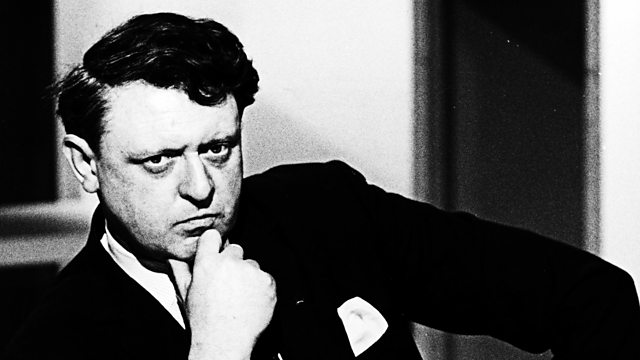Burgess and Populism/Class - Dr Simon Rennie
An essay by Simon Rennie about writer Anthony Burgess.
Anthony Burgess is one of the best-known English literary figures of the latter half of the twentieth century. A polymath of the highest order, he was a novelist, composer, translator, screenwriter, travel writer, teacher, linguist, phoneticist, essayist, short-story writer, critic and poet.
Five writers, some of whom knew him in person, reflect on their favourite Burgess incarnation, exploring this extraordinary 20th-century man of letters from different angles. Everything Burgess wrote contributed to his main oeuvre, his musical composition as important to him as his novels that were shaped heavily by his critical analysis of other's fiction which was informed by his poetry and so on. Burgess at 100 offers personal as well as critical insight into why and how he is a literary figure of such importance.
Part of Radio 3's Burgess Centenary programming, marking 100 years since the birth of Manchester-born novelist and playwright Anthony Burgess.
Burgess and populism/class - Dr Simon Rennie
Dr Simon Rennie is lecturer in Victorian Poetry at the University of Exeter. He specialises in working-class poetic cultures of the mid-nineteenth century, and recently published a book on the poetry of the Chartist leader, Ernest Charles Jones. He is currently researching the poetry of the Lancashire Cotton Famine of 1861-65. Before becoming an academic Simon worked for twenty years in various manufacturing and warehousing roles, mostly as an upholsterer and workshop foreman. He is a published poet and enjoys running longish distances, singing choral music, and playing the guitar and erhu (two-string Chinese fiddle).
Anthony Burgess is a key figure in 20th-century world literature. His dystopian satire A Clockwork Orange is still a global best seller, and was adapted into a highly controversial film by Stanley Kubrick in 1971. Burgess produced numerous other novels, including the Enderby quartet, and Earthly Powers, regarded by many as his greatest novel. He wrote librettos and screenplays, including for the 1977 TV mini-series Jesus of Nazareth. He worked as a literary critic for several publications, including The Observer and The Guardian, and wrote studies of classic writers, notably James Joyce. A versatile linguist, Burgess lectured in phonetics, and translated Cyrano de Bergerac and the opera Carmen, among others. Burgess also composed over 250 musical works.
Producer, Polly Thomas
Production Coordinator, Sarah Kenny
Executive Producer, Eloise Whitmore
With thanks to Andrew Biswell and the International Anthony Burgess Foundation
A Naked Production for 麻豆官网首页入口 Radio 3.
Last on
Broadcast
- Wed 1 Mar 2017 22:45麻豆官网首页入口 Radio 3
Death in Trieste
Watch: My Deaf World
The Book that Changed Me
Five figures from the arts and science introduce books that changed their lives and work.
Podcast
-
![]()
The Essay
Essays from leading writers on arts, history, philosophy, science, religion and beyond.





